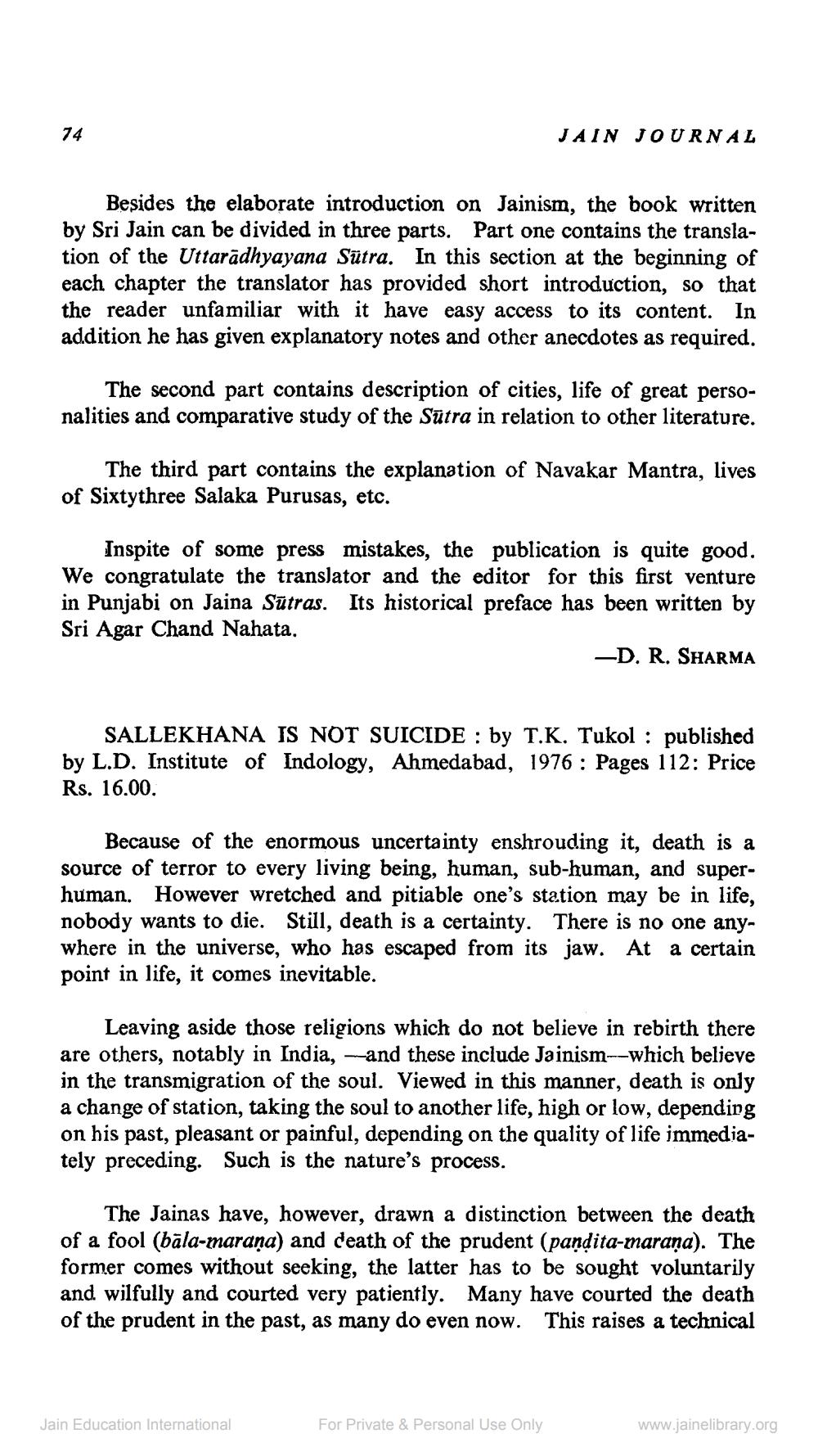Book Title: Jain Journal 1977 10 Author(s): Jain Bhawan Publication Publisher: Jain Bhawan Publication View full book textPage 4
________________ 74 Besides the elaborate introduction on Jainism, the book written by Sri Jain can be divided in three parts. Part one contains the translation of the Uttarādhyayana Sūtra. In this section at the beginning of each chapter the translator has provided short introduction, so that the reader unfamiliar with it have easy access to its content. In addition he has given explanatory notes and other anecdotes as required. JAIN JOURNAL The second part contains description of cities, life of great personalities and comparative study of the Sutra in relation to other literature. The third part contains the explanation of Navakar Mantra, lives of Sixtythree Salaka Purusas, etc. Inspite of some press mistakes, the publication is quite good. We congratulate the translator and the editor for this first venture in Punjabi on Jaina Sutras. Its historical preface has been written by Sri Agar Chand Nahata. SALLEKHANA IS NOT SUICIDE: by T.K. Tukol: published by L.D. Institute of Indology, Ahmedabad, 1976: Pages 112: Price Rs. 16.00. -D. R. SHARMA Because of the enormous uncertainty enshrouding it, death is a source of terror to every living being, human, sub-human, and superhuman. However wretched and pitiable one's station may be in life, nobody wants to die. Still, death is a certainty. There is no one anywhere in the universe, who has escaped from its jaw. At a certain point in life, it comes inevitable. Leaving aside those religions which do not believe in rebirth there are others, notably in India, and these include Jainism--which believe in the transmigration of the soul. Viewed in this manner, death is only a change of station, taking the soul to another life, high or low, depending on his past, pleasant or painful, depending on the quality of life immediately preceding. Such is the nature's process. Jain Education International The Jainas have, however, drawn a distinction between the death of a fool (bāla-maraṇa) and death of the prudent (pandita-marana). The former comes without seeking, the latter has to be sought voluntarily and wilfully and courted very patiently. Many have courted the death of the prudent in the past, as many do even now. This raises a technical For Private & Personal Use Only www.jainelibrary.orgPage Navigation
1 2 3 4 5 6 7 8 9 10 11 12 13 14 15 16 17 18 19 20 21 22 23 24 25 26 27 28 29 30 31 32 33 34 35 36 37 38 39
